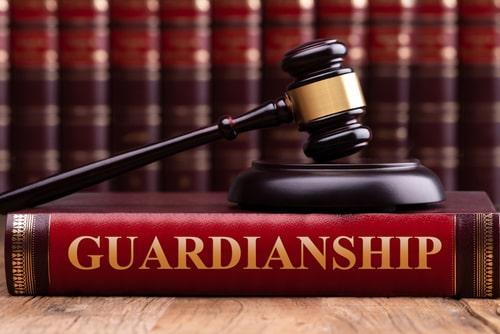 630-393-3111
630-393-3111
4200 Cantera Drive, Suite 200 | Warrenville, IL 60555
What Are the Responsibilities of a Disabled Adult Guardian in Illinois?
 When an adult in Illinois is sufficiently disabled such that he or she is unable to make or communicate decisions about their care, living arrangements, and finances, legal guardianship may be necessary. Illinois law provides legal protection for its adult disabled citizens and Illinois has one of the most progressive guardianship laws in the US, with helpful procedures for appointing guardians and detailing the responsibilities of guardianship.
When an adult in Illinois is sufficiently disabled such that he or she is unable to make or communicate decisions about their care, living arrangements, and finances, legal guardianship may be necessary. Illinois law provides legal protection for its adult disabled citizens and Illinois has one of the most progressive guardianship laws in the US, with helpful procedures for appointing guardians and detailing the responsibilities of guardianship.
Serving as a guardian for a disabled adult is a major responsibility. If you are considering becoming a guardian, it is important to understand what you can expect and what will be expected of you.
Types of Guardianships
There are two basic types of guardianships in Illinois: Guardianship of the estate and guardianship of the person. Although these can be broken down into more specific categories, these two basic types offer a helpful umbrella for understanding the different responsibilities contained within each role.
Guardianship of the estate is when a guardian is responsible for managing the legal and financial matters of the “ward,” or the disabled adult in their care. This includes managing the ward’s finances, including investing, saving, and spending when necessary. This may include applying for public benefits available to the ward, including federal benefits like Medicaid or Social Security benefits, and state benefits from the Illinois Department of Healthcare and Family Services. Guardians of the estate also pay the ward’s bills, including to a residential facility if relevant, and ensure that the ward has enough money for personal needs and desires. Guardians of the estate have a serious fiduciary responsibility towards the ward, and must never use the ward’s accounts, money, or benefits for their own personal use.
Guardianship of the person is when a guardian is responsible for the ward’s personal care, including their healthcare, education, and living arrangements. Guardians of the person may have physical custody of the ward and/or the ward’s minor children, and will need to make decisions about what is in the ward’s best interests. Guardians of the person may also be responsible for providing information to relevant governmental or supervisory agencies about the ward’s living conditions.
Schedule a Consultation with a Naperville Adult Guardian Lawyer
The responsibilities of being a guardian for an adult with disabilities are important and meaningful. If you are intending to become a guardian, or are already a guardian and have questions about your role under Illinois law, meet with an experienced DuPage County disabled adult guardian attorney with Calabrese Associates, P.C.. Schedule a consultation by calling our offices today at 630-393-3111.
Source:
https://www.ilga.gov/legislation/ilcs/ilcs4.asp?DocName=075500050HArt.+XIa&ActID=2104&ChapterID=60&SeqStart=14300000&SeqEnd=17600000


 4200 Cantera Drive, Suite 200, Warrenville, IL 60555
4200 Cantera Drive, Suite 200, Warrenville, IL 60555 630-393-3111
630-393-3111





